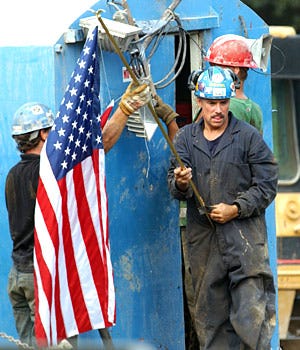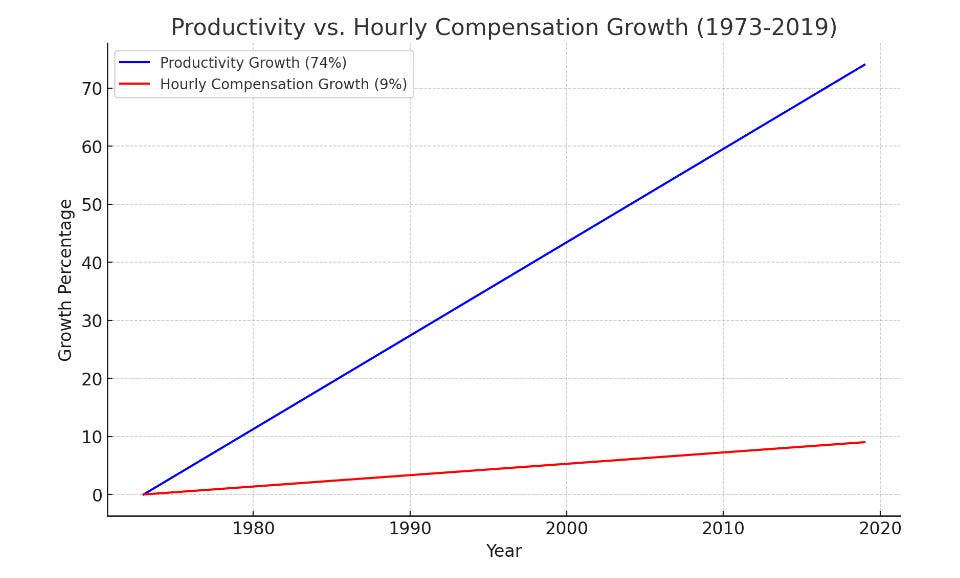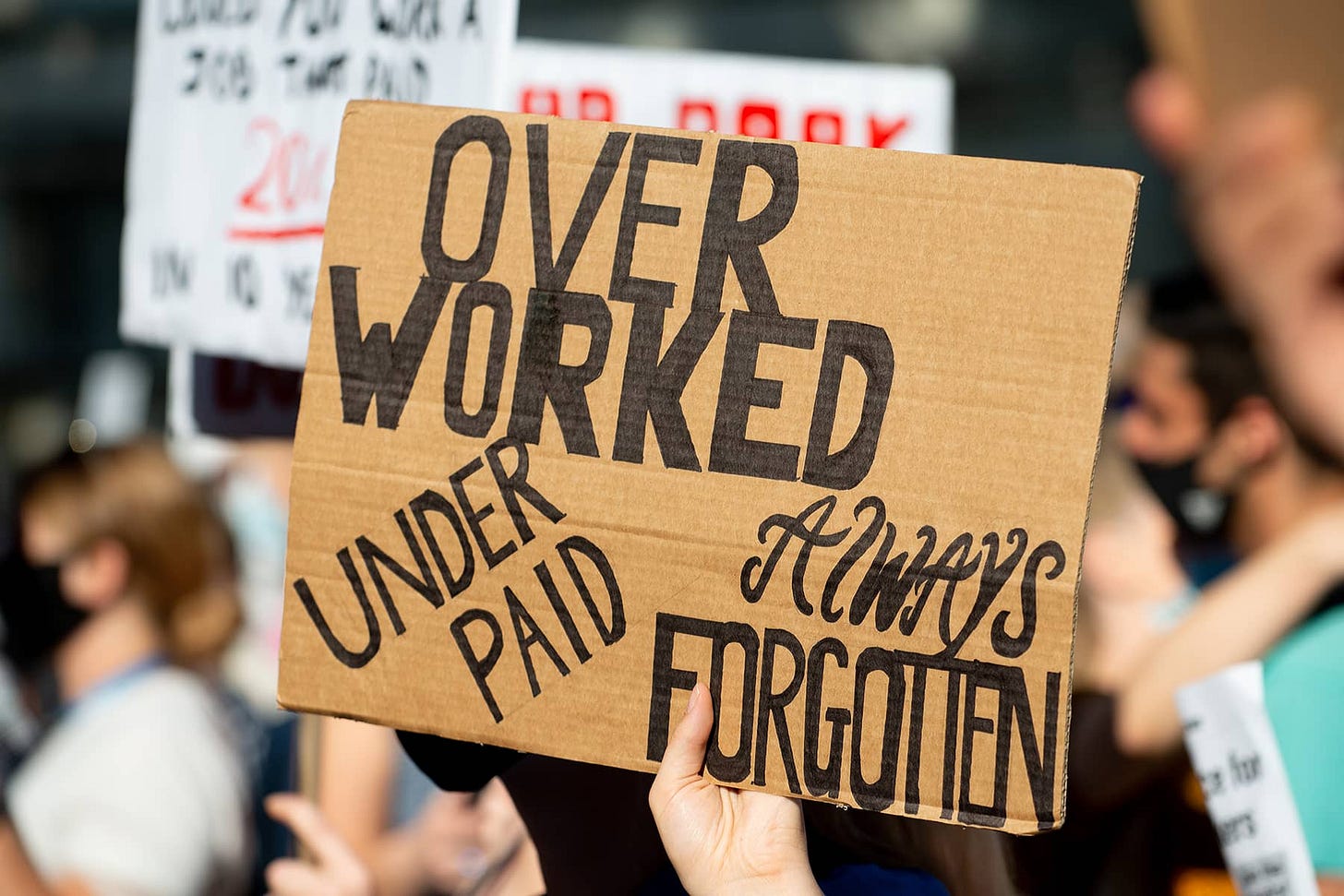The relationship between America and its working class is one of profound complexity and contradiction. In this nation, the worker is often seen not as a source of pride, but as an emblem of a lower status. The absence of a degree or specialization consigns many to a stagnant and unappreciated labor market. This lack of esteem for the workers has resulted in their interests being overlooked, particularly by the conservative right, which should be their natural ally. Instead, millions of workers find their votes being cast for those who replace them with cheaper foreign labor. A significant portion of the workforce, disillusioned with this betrayal, turns to figures like Trump, who, though imperfect, at least pays lip service to their plight—though only as far as it serves American production.
The truth is, both Democrats and Republicans, entrenched in their elitist spheres, disregard the everyday challenges of the average American worker. This disdain is exacerbated by a systemic issue: the relentless stagnation of wages amidst soaring productivity. This is no accident, but a deliberate outcome of corporate practices and public policies that favor capital over labor. Employers, wielding monopsonistic power in concentrated labor markets, suppress wages, especially in regions with limited job opportunities. Over four decades, this power dynamic has led to a severe suppression of wages (1).
The disconnect between productivity and compensation is stark. Since 1973, productivity has surged by 74%, yet hourly compensation for the typical worker has barely budged, rising only 9% (2). This widening gap reveals a shift towards greater capital accumulation at the expense of fair wages for labor. The disparity is further underscored by the skewed growth in income. From 1979 to 2019, while median wages crept up by 13.7%, the incomes of the top 1% exploded by 160%, with the top 0.1% seeing even greater gains (3). This is a redistribution of wealth toward the elite, driven by exorbitant executive pay and benefits.
To address these imbalances, we must implement protective tariffs on goods from nations with inferior labor standards. Such tariffs would not only shield American industries and workers from unfair competition but also elevate global labor standards by discouraging the exploitation of cheap foreign labor. The cost difference caused by these tariffs would be calibrated to reflect the disparity in production costs, ensuring that American products remain competitive while promoting fair labor practices globally.
Moreover, the use of domestic prison labor presents a practical solution. With the U.S. spending nearly $860 billion annually on incarcerating 1.9 million people, this labor force can be redirected to productive use. In states like California, where minimum wages are high, prison labor could be leased out at a federally set rate, allowing inmates to earn money that could support their families or aid in their rehabilitation. This approach would not only reduce public expenditure but also provide a structured environment for skill development and productive work.
Inmates, properly trained and utilized, could fill labor gaps, particularly in sectors struggling to find workers. This would contribute to a more balanced economy, reduce reliance on foreign labor, and strengthen domestic production. The economic benefits extend beyond the private sector, as inmates could work on public projects, improving infrastructure and public services while alleviating the financial burden on taxpayers.
The ultimate goal is not merely to control inflation or stabilize the economy, but to elevate the status of the worker within society. By advocating for the rights and compensation of skilled tradesmen and union members, we ensure that those who contribute significantly to the nation’s wealth are duly rewarded. The emphasis should not be on raising the minimum wage but on recognizing and compensating the true value of skilled labor (4).
The goal of this vision is to raise the skill level of America's citizens, and put over a million inmates to work so that they can eventually work regular jobs as freemen. As well, we wish to raise the compensation of skilled labor to a level where one skilled laborer can support an entire family. We view both of these measures as intrinsically linked to the restoration of our society and family structure. Too many men and women are rotting behind bars or at minimum wage jobs, due to this, a malaise has set upon the younger generations in this country. We must make productive citizens and homemakers out of our disgruntled youth.
Of course this sentiment must be backed with plans to support it. This is why New Frontier supports a robust public works program. We believe that with our rotting infrastructure nationwide, we must cease foreign aid entirely and spend all of that money on domestic aid. This aid would mostly take shape in money for projects such as pothole fixes, bridge rebuilds, putting a fresh coat of paint on important buildings and refurbishing entire parts of towns and cities. This nationwide beautification project will require skilled men and women, young and old, to embark on tasks in a uniform manner. This project will first require major investment into training programs, subsidizing them to the point where anyone can afford them.
This will give us the purpose and the necessary inward focus we need as a nation to regain the American dream that follows with the American spirit. The American spirit only comes alive during times of collective struggle. In times like the American revolution, the civil war, and the westward expansion, we had a shared spirit in this nation. We must once again regain this collective will in order to power through the challenges that have presented themselves for decades without cease.
In this vision, a robust and equitable economic system is achieved when the state asserts its authority over capitalist mechanisms, ensuring that they serve the people. The state must not be a puppet of international finance but a sovereign power that champions the welfare of its citizens. It is through this vigilant oversight that we can ensure a fair distribution of wealth and uphold the dignity of the worker, ensuring that all benefit from the nation’s prosperity.
However, we must learn from prior mistakes and history. This supremacy of the nation over the capital in it must not come at the cost of the capital itself. America is in a precarious situation where we must produce more and more while somehow addressing the major wealth gap between the 1% and everyone else. It is our position that productive capital (energy, manufacturing, construction, transportation, etc) should not be punished, as a matter of fact, they should pay lower taxes as they help the nation to maintain global relevance and domestic independence. However, the banksters, money changers and Wall Street sharks must be brought to heel for the nation's better good. The problem with big money is not the fact that it exists, it’s that it dominates.
Capital that creates national wealth and upholds the wellbeing of the people is the people themselves. The only time capital registers itself foreign is when it acts against the interests of the people of the nation while profiting off of those people. These parasitical relationships must be ceased by the governing body of the people and until such action is taken, it is incumbent upon the people to make noise and demand rightful action. This is what we demand in relation to international finance and transnational corporations, they either fall in line with the American people’s interests, or cease benefiting off of their market. Strengthen the American worker, because there’s no replacing the American worker, we will replace you.
Sources:
1. What’s Causing Wage Stagnation in America? - insight.kellogg.northwestern.edu
2. The Productivity–Pay Gap - Economic Policy Institute- https://www.epi.org/productivity-pay-gap/
3. America’s Vast Pay Inequality Is a Story of Unequal Power - American Bar Association- https://www.americanbar.org/groups/crsj/publications/human_rights_magazine_home/wealth-disparities-in-civil-rights/americas-vast-pay-inequality-is-a-story-of-unequal-power/#:~:text=by%20David%20Cooper%20and%20Lawrence%20Mishel&text=Over%20the%20past%20five%20decades,country's%20highest%20earners%20has%20skyrocketed.
4. Causes of Wage Stagnation - Economic Policy Institute- https://www.epi.org/publication/causes-of-wage-stagnation/














